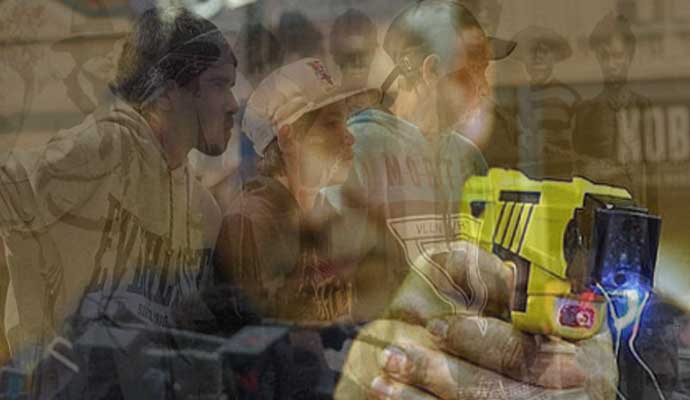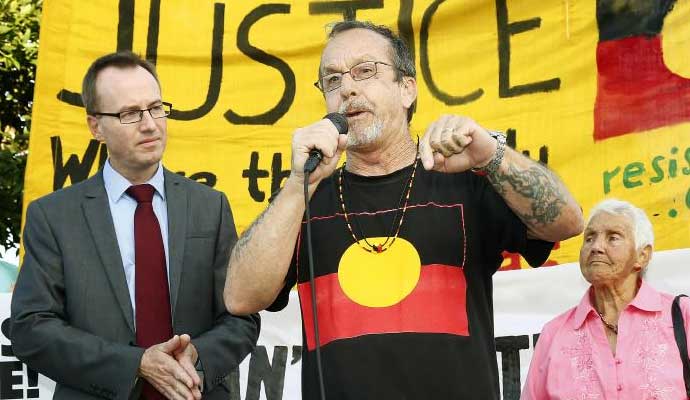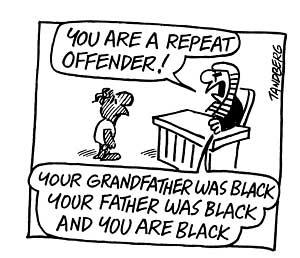You are here
Search by issue
Media Releases & News
- SU Media Releases
- 2024
- 2023
- 2022
- 2021
- 2020
- 2019
- 2018
- 2017
- 2016
- 2015
- 2014
- 2022
- 2013
- 2012
- 2011
- 2010
- 2009
- General Statements
- Sovereign Treaties: International Law
- Walkout Statement from Sacred Fire
- Proclamation (with video Readings)
- UDI's Explained
- What is 'Decolonisation'?
- Uluru Statement from the heart
- Sovereign Manifesto of Demands
- NO CONSENT to Recognition
- Submission on ILUA Amendment
- Uluru Statement video testimonials
- Uluru Statement grassroots videos
- Complexity of Treaty and Treaties
- Understanding Treaty & Treaties
- Official SU Meetings
Sovereign Union Menu
- Self Governance
- International
- Treaty - Treaties
- Sovereignty
- General Principles of Sovereignty
- First Nations sovereignty defined
- The Sovereignty Debate
- Sovereignty into Governance
- Reform: Practicing sovereignty
- Sovereignty after Mabo
- What about Sovereignty?
- Current sovereignty debate
- Sovereignty protest Qld
- Research papers & Theses
- Sovereignty never ceded -thesis
- SA sovereignty challenged
- Rosalie Kunoth-Monks leads the way
- Pacific Islanders Act 1875
- Asserting Aboriginal Sovereignty
- Aboriginal rights then & now
- Michael Kirby Oration
- Academic Paper : Songlines
- John Howard recognised sovereignty
- Queen Victoria: Crown owns nothing, Aborigines sovereign
- Rejecting 'recognition'
- Yingiya Mark Guyula Speach
- New Way Summits
- Decolonise
- August
- Australia: UN Questionnaire
- July
- Law against Genocide Bill
- Rally: 'Let us go Home'
- Ray Jackson: 30 years of light
Special Features
- History
- During Invasion
- Invasion
- 1788-2014 Invasion to Resistance
- 'The condition of the natives' 1905
- Mapping QLD massacres
- Cooks Instructions & Diary
- Whites & Blacks during the colonisation in the late 19th Century
- Australia's history of slavery
- Dad 'n Dave - The Qld killing fields
- Treatment of Aboriginal Prisoners
- 'Conspiracy of silence' blood baths
- British Parliament Report 1837
- Culture
- Horrors of North West WA
- Ignorance & Racism
- Invasion
- Post Invasion
- Stolen Remains and Collections
- Culture
- Kitty Wallaby: Dreamtime & colanisation
- Improve heritage management
- Unlock secrets of rock art
- Kurlpurlunu found in Central Australia
- Forgotten' Woolwonga tribe for 130 years
- First Nations rock art is at risk
- Language diversity threatened, study
- Languages Treasure trove
- Pressure to lose values and culture
- Languages reveal scientific clues
- Ignorance & Racism
- Father of the Stolen Generation
- Aboriginal counting myth won't go away
- Pleading letters to 'Protector'
- 1926 plan for an Aboriginal state
- First prisoner abuse inquiry 1905
- Legalised slavery: hidden reality
- The second dispossession
- Rottnest Island internment camp
- Meston's 'Wild Australia' Show 1892-1893
- Stolen Wandjina: Cultural Appropriation
- Whitefellas destroyed our bible
- Fraser Island Death Camp
- Intervention to kill self-determination
- Ongoing Warfare
- Pre Invasion
- Culture
- Genesis
- Out of Australia - Not Africa
- confirmation of genetic antiquity
- WA's Mid West History 30K
- 'Australian' peoples were first Americans
- How First Nations saw the Stars
- Ice Age struck First Nations people hard
- Kimberley paintings could be oldest
- Misunderstand First Nations science
- Sea-Level recorded
- James Cook's Secret Instructions - 30 June 1768
- Trading & Hospitality
- Landcare, Science, Agriculture
- Captain Cook
- During Invasion
- The Frontier Wars
- Memorial Marches
- The Frontier Wars
- Anzac Gathering 2012
- Aboriginal servicemen honoured
- 1905 Report WA's North
- Anzac Day Videos
- Battle for FF memorial
- From invasion to resistance
- Frontier Wars Remembered 2016
- Image Galleries
- Invasion & Sovereignty
- Invasion Day Callout for 26 January
- Memorial ignores frontier war
- The Freedom Fighters
- Truth about the Gulf country
- Conflicts/Massacres
- Massacres & Trophies
- Mixed Media
- Canberra 2016
- Closing the Homelands
- Homelands explained
- Central Articles
- Closing Homelands for mining
- Vital for ecosystems
- Terra nullius never went away
- Barnett's plan to axe homelands for years
- Fed Gov't $100 million deal with states
- Mining: $10,000 job sweeteners
- Abbott rejects international law
- Barnett's War on Health
- Anatomy of Racism in 2015
- Food supply autonomy needed
- Freedom Summit: WFD Media Release
- Funding: Confusing-fractured-racist
- It's OK to discriminate
- The demise of Coonana community
- Sovereign Union Articles
- Reports by State & Territory
- Video - Images - Audio
- Rallies
- Media Reports
- Homeland Closures
- 'Recognition' Constitution
- Nuclear Waste Dumps
Key Topics & Issues
- NT Detention Hearings
- NT Intervention
- Sovereign Embassies
- All Embassies - Map
- Embassies
- Canberra Tent Embassy
- Perth Sovereign Embassies
- Portland Sovereign Embassy
- Brisbane Sovereign Embassy
- Brisbane Embassy - Home
- What is Brisbane Embassy?
- 2013 content
- 2012 content
- New Stolen Generation rally
- Police arrest sovereigns
- Politically motivated eviction
- Brisbane - Eviction notice
- Brisbane Embassy meets CMC
- Brisbane conference 2012
- Charges dropped but ...
- Council meets Elders
- Embassy arrestees protest
- Embassy midnight raid
- Embassy to be shut down
- Fire destroys Embassy
- Musgrave heritage listing
- Sovereigns charges dropped
- Moree Sovereign Embassy
- Broome Tent Embassty
- Woomera Sovereign Embassy
- Airds Sovereign Embassy
- Gugada Sovereign Embassy
- Tent Embassy in Airds, Campbelltown
- Call for Embassy tolerance
- Embassy Articles & Media
- Land, Sea & Water
- Northern Murray Darling Basin
- Water Treaty Talks: Murray-Darling Basin Nations
- Mining Country
- Adnyamathanha people of the rocks
- Ancient approach to global emissions
- Danger: Developing the North
- First Nations Land Management
- Historical sites in NSW
- Clark and Mansell: trading beef
- David Suzuki: Aboriginals best bet
- Dingoes may save wildlife
- Fires support mammals - research
- First Nations had villages and farmed
- Homelands vital for fragile ecosystems
- Hunter gatherers Myth - Bruce Pascoe
- Kangaroos win after hunt with fire
- Race to protect ancient rock art
- Kakadu Park 40th Anniversary
- Land rights and the government
- Native 'wild' rice in Australia
- Native Title amendments slammed
- Ngoongar Grower group using Native Youlks
- WA Aboriginal Heritage Act overview
- Sovereign Neighbours
- West Papua - Freedom Flotilla
- Articles - Free West Papua Movement
- December
- October 2013
- September 2013
- Emergency Protest of Illegal Deportation
- FF activists a test for Abbott government
- West Papuans Deported to Port Moresby
- Six West Papuan's flee after ceremony
- Freedom Flotilla claims success
- Sacred water and fire celebrated
- Ceremony completed in secret
- Military buildup in destination port
- Men released: Treason charges pending
- Julie Bishop incites military action
- Threats to turn back boat
- Four arrested at FF Welcoming
- Time for human rights in Papua
- August 2013
- Media Files
- Articles - Free West Papua Movement
- Atooi Unification Ceremony
- Atooi now has jurisdiction
- Australia & Fiji union
- Canada Day: Time of Mourning
- Canada First Nations alliance
- Canada: Commercial fishing rights
- India: Ruling against mining co
- Indigenous rights struggle
- North American Indians seek Sovereignty
- Statue honors US freedom fighters
- The Creation of one world gov't
- Vanuatu: Pacific custom land tenure
- Arizona tribal law system
- Canada: Tsilhqot'in peoples win ruling
- Embassy meets Indonesians
- Grandmothers: worst ever stealing
- Ibans acquired native customary rights
- Maori did not cede sovereignty
- UN: Canadian Aboriginals in crisis
- West Papua - Freedom Flotilla
- The Invasion
- A day of sadness
- Health and Social Issues
- Suicides & Depression
- Suicides just happened?
- Nothing will be done about the suicides
- First Nations suicide rates
- Gov't not listening - People die
- 77 suicides in SA alone
- 996 deaths by suicide
- Hundreds will suicide if we wait
- Suicides: 'A humanitarian crisis'
- Suicide is humanitarian crisis
- Suicide epidemic worldwide
- Noongar x3 suicide rate
- Falsely arrested & drugged
- Cashless Welfare Card
- Family breakdowns causing repeats
- General Health Issues
- Government Policies
- Youth suicide at crisis point
- Negatively framing policies
- A little boy who hid under the bed
- Defend and Extend Medicare
- Call for help results in children stolen?
- Doctors in communities in WA reduced
- Children and human rights
- Our children more likely to be removed
- Justice? wake up WA
- Need for Bilingual schools
- Racism Effects
- Rosie Fulton
- Work-for-the-Dole Unhealthy
- Youth lost in prisons: Amnesty
- Suicides & Depression
- Gross Abuse
- Genocide and apartheid
- National
- States & Territories
- Suicides
- Imprisonment & Deaths
- International Critisism
- Genocide
- More Gov't Abuses
- Mining and Destruction
- Racism
- Racism Game in Australia
- 27% say it's OK to be racist
- Abbott backs out of Racism changed
- Genocide by Apartheid Australia
- How Bolt should be punished
- Racial discrimination in Australia
- Racism Media
- Racism driver for ill health
- Racism is a health issue
- Racism worse than Sth Africa
- Reform: Just Ask Black Australia
- Unpacking White Privilege
- Welcome to Dja Dja Wurrung Country
- White Australian National Anthem
- Solidarity
Media & Resources
Activism and Politics
- Activism
- Homelands
- For the record: Sovereignty Never Ceded
- Freedom Fighters memorial call
- Anthony Fernando 1864–1949
- Fernando's Ghost - Transcript
- Historic Videos and Images
- Australia’s dirty secret
- Deebing Creek development
- Pilbara pastoral strike
- Pro-Black Isn't Anti-White
- Truth Telling Uluru Statement
- UN slams anti-protest laws
- Whitlam: Legacy of Wave Hill
- Winyirin Bin Bin, Pilbara Strike
- Politics
More proof: The criminal justice system is biased against First Nation People
The NSW 'Bureau of Crime Statistics and Research' tells us that the rise in Indigenous imprisonment in NSW is due to a combination of higher rates of arrest resulting in conviction, a greater likelihood of imprisonment given conviction and a higher rate of bail refusal.
We already know this, it's not rocket science, so why do the politicians refuse to do anything about it?

Aboriginal people in NSW are more likely to be charged, more likely to be refused bail and more likely to spend time in jail than non-Aboriginal people who commit the same offence.
The criminal justice system is NSW is increasingly biased against Aboriginal people according to the latest comprehensive report. The latest analysis released by NSW Bureau of Crime Statistics and Research (BOCSAR) shows that from 2001 to 2015 every step of the criminal justice system, from police to courts, is delivering higher rates of Aboriginal incarceration, despite falling crime rates (also documented in a BOCSAR report released on September 2016).
- 40% increase in rate of Aboriginal people in jail between 2001 and 2015, with a continued upward trend.
- Almost doubling of the Aboriginal jail population from 2001 to 2015 from fewer than 1,500 Aboriginal people locked up in NSW to closer to 3,000.
- More Aboriginal people jailed for public order offences, rising from 121 Aboriginal people in 2001 to 197 in 2015, during a period where discretionary police powers were broadly expanded.
- 14 out of the 16 offence categories show an increase in the proportion of Aboriginal people convicted of an offence receiving a prison sentence.
- In 2015 there were 3,409 Aboriginal people convicted of judicial procedure offences, more than double the 2001 figure of 1,663.
BOCSAR concludes that: "The rise in Indigenous imprisonment in NSW is due to a combination of higher rates of arrest resulting in conviction, a greater likelihood of imprisonment given conviction and a higher rate of bail refusal".

(Image: John Appleyard Daily Mail)
Greens MP and Aboriginal Justice Spokesperson David Shoebridge said:
"Aboriginal people in NSW are more likely to be charged for offences, less likely to be released on bail and more likely to serve prison sentences than non-Aboriginal offenders.
"What that means, is that a time where Aboriginal offending is going down, even more people are being locked up.

"The aggressive approach to policing and raft of fresh offences introduced by both the coalition and Labor has seen more Aboriginal people put in gaol.
"Whether it’s consorting laws, move on powers or public order offences these discretionary police powers are disproportionately directed at Aboriginal people.
"Chronic housing shortages faced by Aboriginal communities together with higher rates of poverty result in a disproportionate number of Aboriginal people being refused bail or found in breach of judicial orders.
"When this structural disadvantage is added to a lack of cultural understanding, the criminal justice system delivers gross injustices to Aboriginal people in NSW.
"The rise in Aboriginal imprisonment is against a backdrop of reduced offending.
"Harsher sentencing across just three offences accounts for an additional 600 Aboriginal people in jail in 2015 than 2001.
"The serious overrepresentation of Aboriginal people in the criminal justice system is found at every level, from arrest and charge to bail, sentencing and parole. The first step in addressing racial bias against Aboriginal people in our criminal justice system is for every political party to accept this an unjust reality.
"Addressing Aboriginal overrepresentation requires a root and branch reform of the criminal justice system.
"The long term solution is and a change in focus from jailing our first people to investing in their success through justice reinvestment," Mr Shoebridge said.
By David Shoebridgen with some editing

